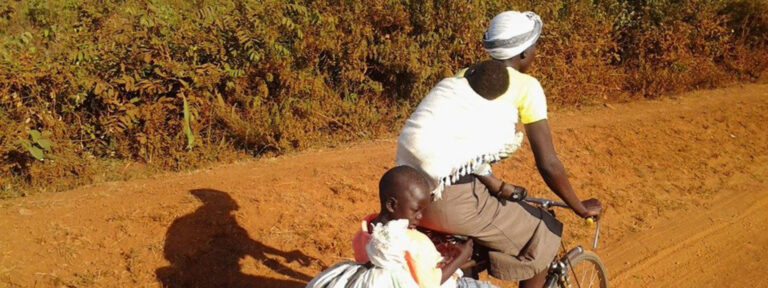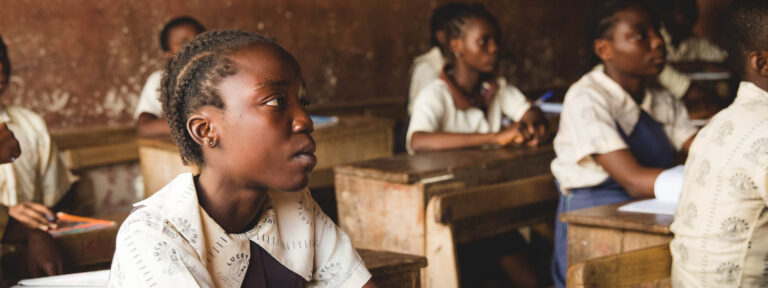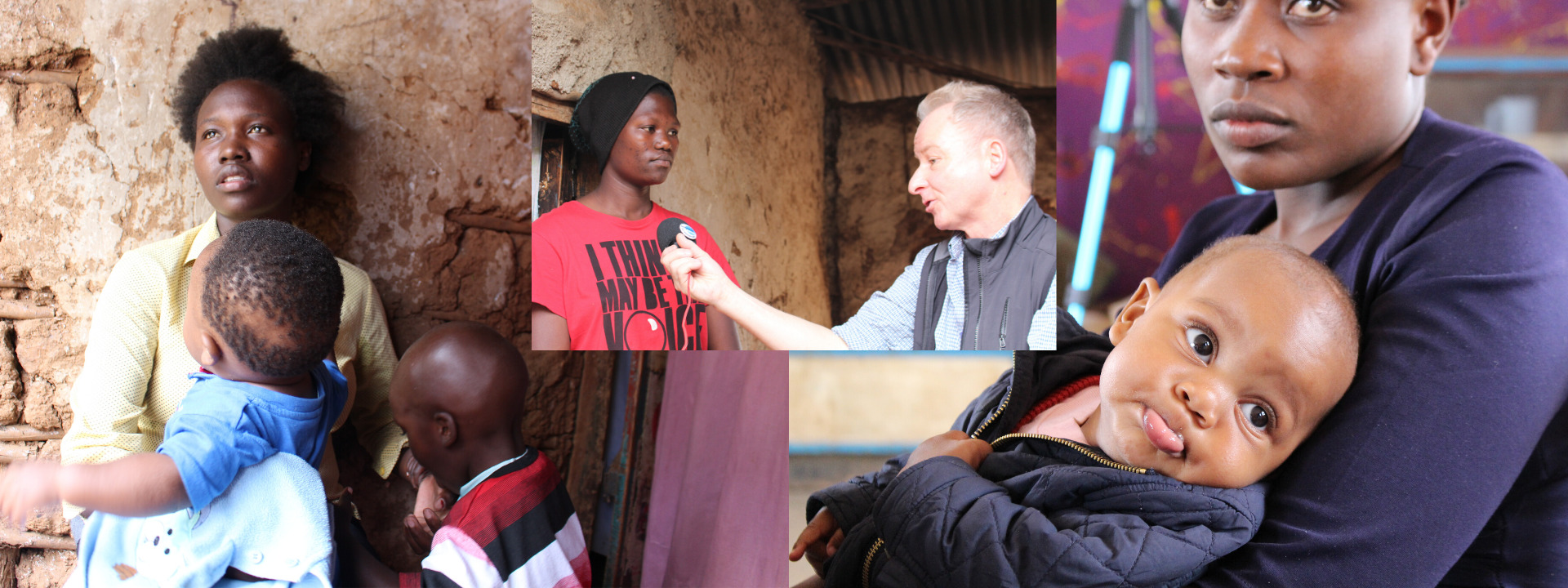
Unmet needs: conversations with the women left behind
Population Matters’ Director, Robin Maynard, summarises events at this month’s Nairobi Summit on ICPD25, and recounts his experience of meeting young women and their families in Africa’s largest slum and surrounding rural communities.
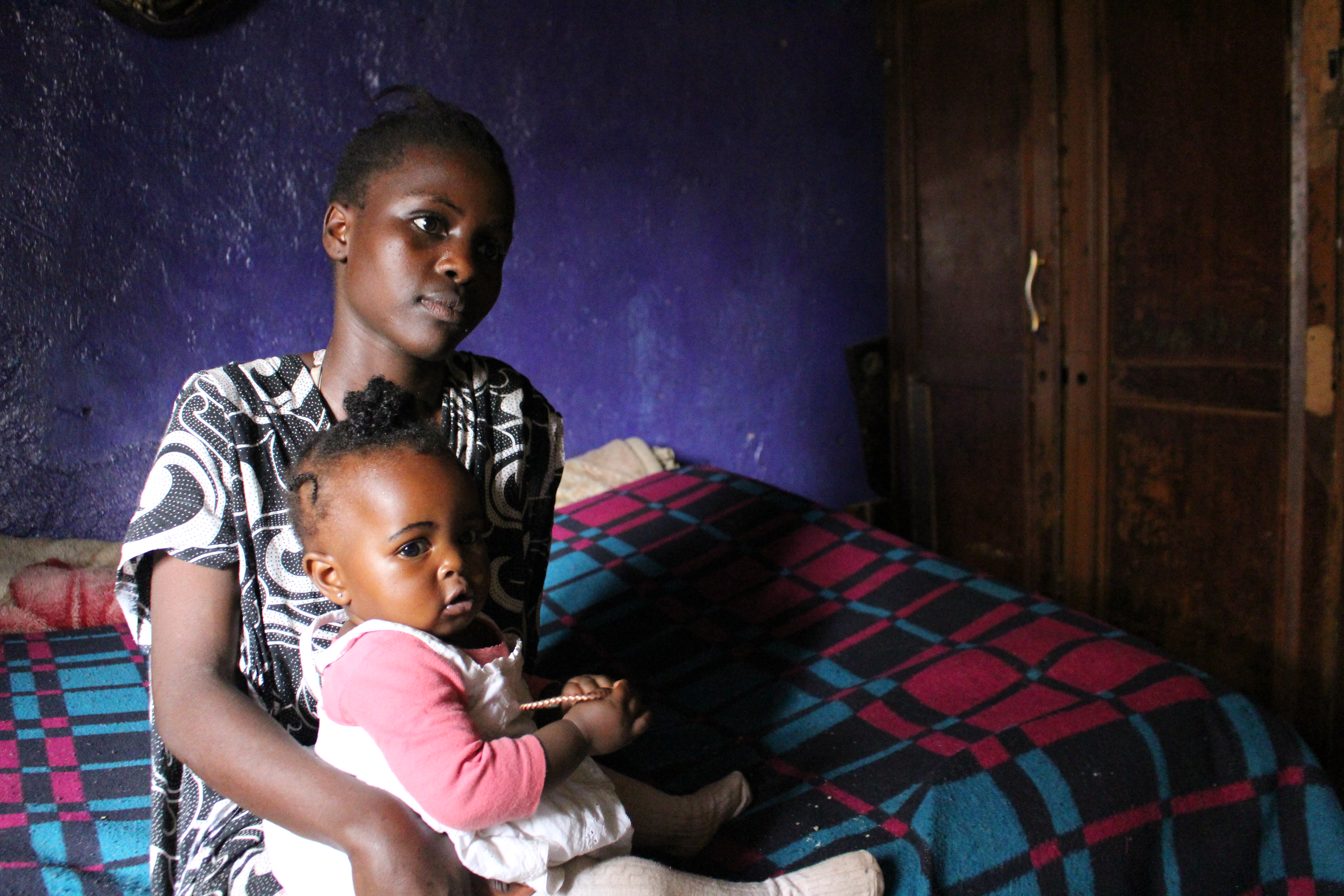
The controversy around the UN’s International Population and Development Conference (known by its acronym ICPD25, being the first held since the initial Cairo summit of 1994) had begun well before PM’s ‘delegation’ made up of our Campaigns and Projects Officer, Florence Blondel and myself, landed at Nairobi’s Jomo Kenyatta airport. Hard-line religious groups, primarily Christian, condemned the Conference as promoting ideologies and rights that they saw as antithetical to African beliefs and customs. The Catholic Bishops of Kenya added their voice to the opposition, denouncing what they saw as the Conference’s ‘hidden agenda’ to normalise LGBT and pro-choice rights: “We reject the introduction of these ideologies centred on gender, and other alien practices, which go against our African culture and our religious heritage. We view this agenda as an intent to corrupt our Youth and enslave them to foreign ideologies.”
Outside the Conference, anti-abortion activists, some of whom appeared to have flown in from the US, paraded with placards bearing messages such as, ‘Abortion Kills Our Children!’ These conservative religious groups sought to divert public and media attention away from the official UN ICPD25 summit by setting up an alternative counter conference of their own, but compared to the nearly 10,000 people from over 170 countries queuing for hours to get into the official summit, the alternative event received only modest attendance and attention from delegates. The US delegation being the exception, crossing the road to show their solidarity with anti-abortion, pro-life groups in keeping with the regressive stance the Trump administration has taken on population, human rights and development issue – notoriously, reinstating the ‘Global Gag’ whereby all US aid is cut to any programme that is not 100% avowedly anti-abortion under any circumstances. That single, cynical action playing to Trump’s evangelical conservative Christian base has led to a funding shortfall of almost $9 billion in US foreign assistance. Leading reproductive healthcare provider Marie Stopes International estimated that the resulting blow to their services alone would cause more than 800,000 unsafe abortions and 7,000 preventable maternal deaths.
Progress, but…
In contrast to such views and policies, the official ICPD25 summit, its agenda and outcomes must surely be seen as progressive, forward-looking, directed at meeting the needs of the most hardpressed communities and countries – and to have fulfilled its descriptor as being focused on both population and development issues?
To some degree, yes.
A majority of the 170 countries represented signed-up to 1,250 concrete commitments for increasing budgets to health, enabling access to modern contraceptives and for training more midwives, as well as vaguer, optimistic promises such as ‘harnessing the demographic dividend’ from their young populations. The host government, Kenya, also committed to the long overdue measure of ending female genital mutilation (FGM) by 2022. Opening the conference, Her Royal Highness, Crown Princess of Denmark and Patron for UNFPA stated that,
“The desired outcome of the ICPD was to give choice to the individual, and choice is very powerful. Informed and real reproductive choices can reduce maternal mortality by reducing the number of pregnancies, the number of abortions and the proportions of birth at high-risk, teenage pregnancies. It also offers a host of additional health benefits, social benefits and economic benefits, it can help reduce infant mortality, slow the spread of HIV/AIDS, promote gender equality, reduce poverty, accelerate social economic development and protect the environment.”
PM very much supports that emphasis on choice, as per our strapline, ‘Every (informed!) Choice Counts’.
Making the connection
For the UK, Baroness Sugg, Parliamentary Under Secretary of State at DFID, pledged £225 million in overseas aid per year up to 2022 for family planning globally, which she stated the UK sees as a core component of comprehensive sexual and reproductive health and rights. It was good to hear a UK politician speaking on a global stage make the connection between addressing population and environmental issues: “Collectively, we have the potential to reduce unmet need, to empower women and adolescent girls to really advance gender equality, to ensure that the most marginalised are reached and that we are prepared to face some of the biggest challenges we are going to face such as climate change and crisis.”
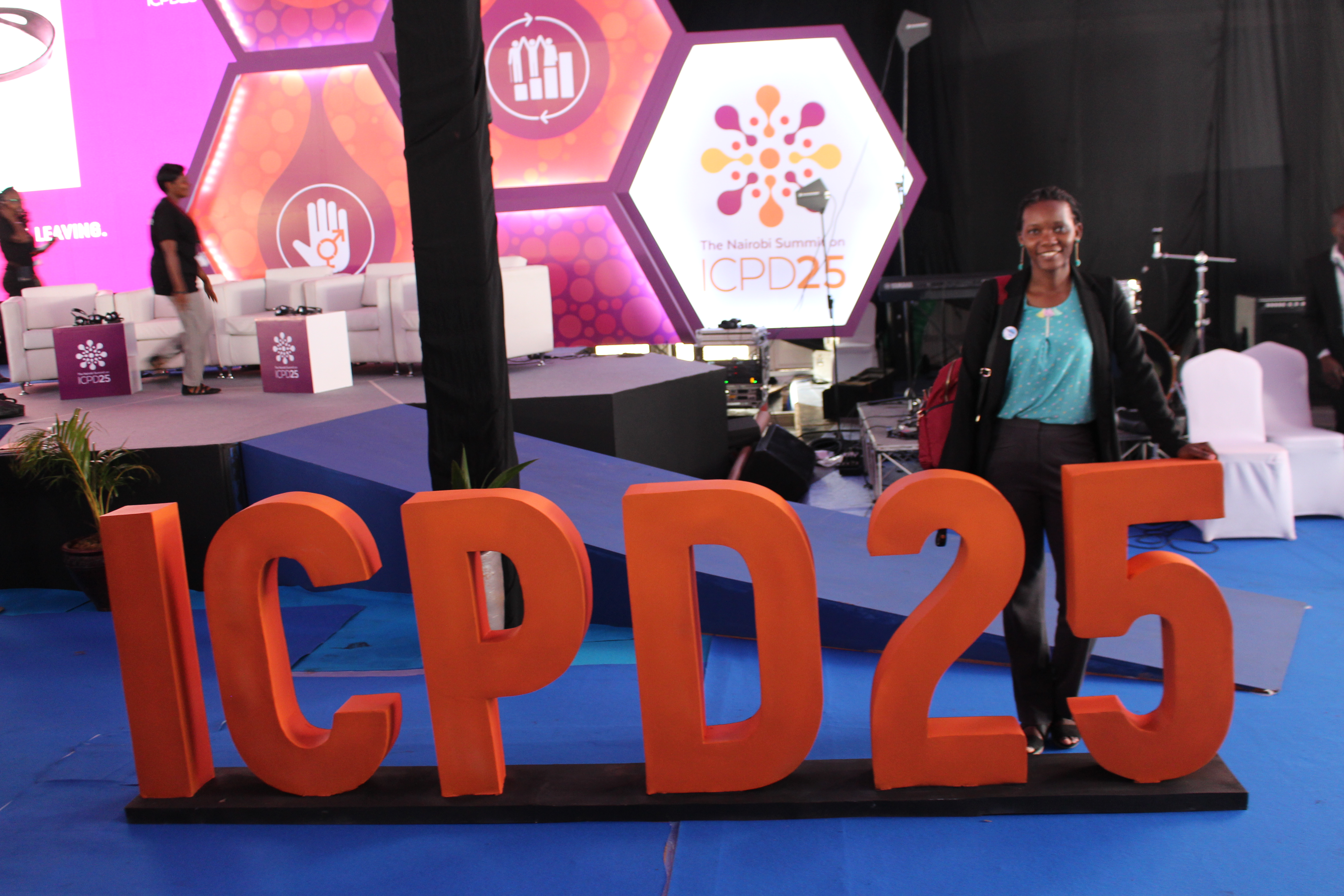
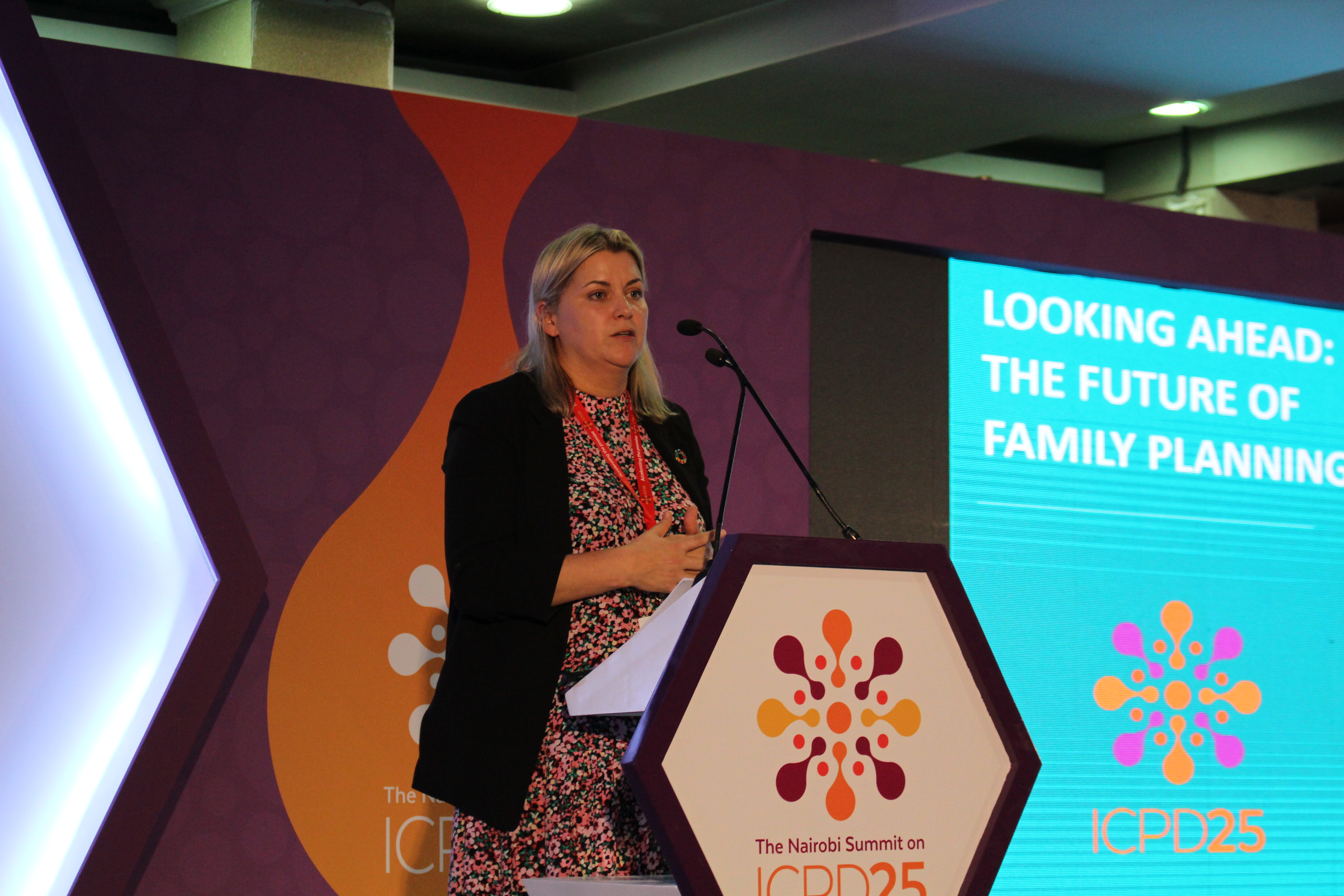
But what was lacking from the Conference was any overarching context or sense of perspective or indeed urgency as to the reality of global human population growth and its impacts upon people and planet. ICPD25 was very much focused on seeking to accelerate the programme of action (POA) agreed at the Conference held 25 years earlier in 1994 in Cairo and at which the framing of the population debate that has held sway for the past quarter of a century was enshrined. No longer were international discussions and policy-making to be focused on the overall numbers or impacts of population growth and certainly not from any overt consideration of seeking to minimise further population growth, but addressed exclusively through the lens of reproductive health and women’s rights. Emphasising the crucial importance of addressing the unmet needs of young women and girls was right and necessary, but stripping out and effectively creating a taboo around addressing that in context of ongoing population growth was a mistake. A mistake, ironically, borne out by the numbers; since that shift of emphasis at Cairo:
- Our global population has increased by over 2 billion from 5.6 billion in 1994 to 7.7 billion today
- Despite the focus on enabling more women in developing countries to access safe, modern contraception, the proportion of women doing so has increased by only 6% – from 52% globally to 58% today
- The UN acknowledges that 232 million women worldwide still have an unmet need for modern contraceptives
- Nearly 50% of all pregnancies are estimated to be unintended
- More than 800 women die every day from causes related to pregnancy or childbirth.
Coercive ‘population control’ programmes, abusing human rights and targeting particular sectors of society for sterilisation, as characterised by those introduced in China and India, are rightly condemned as abhorrent. But focusing only on those negatives ignores the greater number of positive examples of voluntary, non-coercive, choice-based programmes led at the community level that have been successful in reducing birth rates and boosting the wellbeing of the individual and country from Bangladesh, to Iran to Thailand. These were dismissed and their achievements in stabilising population growth have been ignored and cut out of the discourse at the international policy level. Consequently, the progress being made in slowing and stabilising population growth pre-Cairo has stalled and even reversed – for all the stated good intentions and efforts, our global population has continued to grow by an additional 80 million people per year. That reframing and closing off of any overt discussion as to human population per se was evident in the agenda set for ICPD25.
Speaking up
Fortunately, alongside PM there were a few brave individuals and organisations prepared to speak up, breach the organiser’s imposed protocol not to mention the ‘p’ word, and tell it how it is. Such honest and courageous interjections were made by Ibrahim Thiaw, the Executive Secretary, UN Convention to Combat Desertification,
“Climate change is a fact; we have to deal with it. The challenge we have in Africa is a growing population and natural resources are shrinking.”
And from David Johnson, chief executive of the Margaret Pyke Trust (PM is a partner in MPT’s ‘Thriving Together’ initiative, an alliance of like-minded conservation and population concern organisations),
“We need to change global conservation policy to make reference to family planning. Global population has grown by 2 billion since Cairo ICPD. If we remove barriers to family planning, we reduce pressure on the ecosystem.”
It was notable that these interventions drew applause from the audience. At the beginning of this blog piece, I set the word delegation in inverted commas when referring to PM’s presence at ICPD25. There was a reason for that; despite applying back in July when registration opened, I flew to Nairobi without confirmation that I would be allowed into the Conference. Fortunately, Florence had received confirmation. The queues for registration on the first day to get into or seek to have one’s registration confirmed for the conference were enough to convince me my time was better spent elsewhere (several delegates fainted in the heat and crush!). As a back-up, I’d made contact with a public health consultant, Monique Oliff, who works across Africa delivering healthcare and family planning to those most in need and who are crying out for such – i.e. amongst those 232 million women that the UN acknowledges still do not have the access and choice to the safe, modern family planning they want. Monique had arranged for myself and Florence the day before the conference began to meet young women and mothers in Nairobi’s Kibera slum (Africa’s largest slum); a world away from the sanitised, air-conditioned central business district and conference centre where ICPD25 was held.
It was both humbling and a privilege to meet and talk directly with young mothers, many teenagers and almost all single parents, about their challenges, needs and aspirations for their children. One young woman we spoke with, whom we’d understood to have made the positive choice to remain childless so as to fulfil her aspirations to escape the slum and find an independent life, turned out as our halting conversation progressed, to have a very different story to tell. Unable to support herself or her ageing grandmother – with no other living, supportive family – she had been forced to turn to prostitution, selling herself for ‘plain sex’ (that is no form of contraception or protection). Consequently, she relied on unsafe, ‘backstreet’ abortions to terminate her unwanted pregnancies. That lack of choice, the risks she took with her health and life (the chances of her being HIV positive are very high) are the cruel realities that at that moment, I dearly wanted those protesting outside the Conference back in the clean streets of central Nairobi to hear and have their ideological beliefs confronted by.
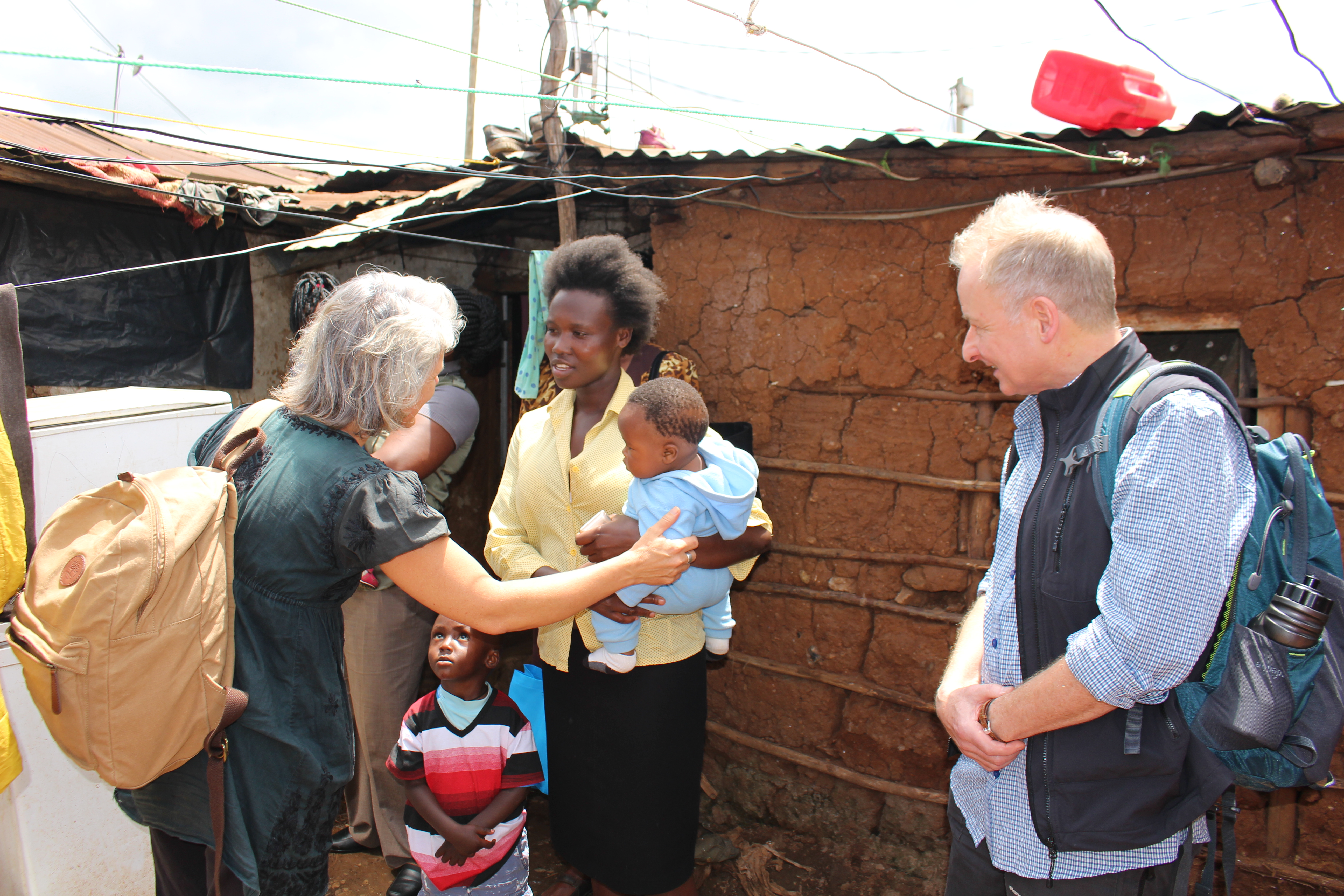
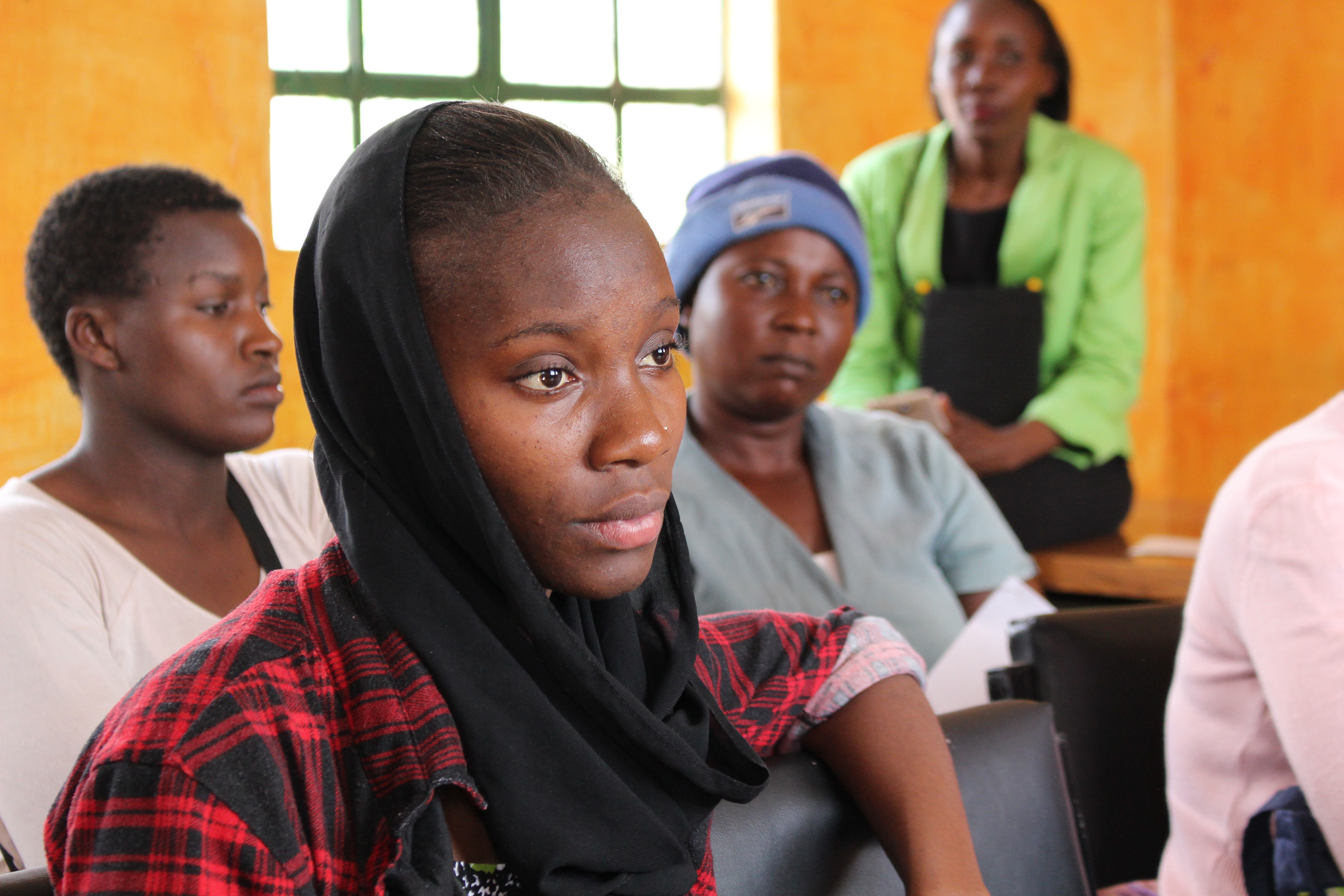
With Florence inside the Conference and my registration still unconfirmed, I extended my reality-checking trip to travel on outside Nairobi to visit rural communities living in the arid lands adjoining the Tsavo National Park. Here again, we met with young mothers expressing their clear views as to having wanted information and access to contraceptive choices before they fell pregnant as teenagers, which forced them to end their elementary schooling. As with their sisters in the Kibera slum, these young women were articulate and clear in their views – unequivocal in the advice they offered to the teenage girl joining us for our al fresco breakfast; stay in school, don’t get pregnant until you’re ready, fulfil your potential. But additional to their shared experiences with young mothers living in the urban slums, they had another clear and present reason: climate change. The seasonal rains they formerly relied on are shifting, periods of drought are increasing, and the crops of maize and other staples that should have been chest-high at this time of the year barely reached our ankles. The rich-looking but thin soil upon which their small farms and modest livelihoods have depended cannot support the numbers of people it once did. Choosing to have a smaller family here is not a life-style eco-choice here, it is a necessity – but one that is still not available to the majority of the women we spoke to. I did finally make it to the Conference in faraway Nairobi on the last day, but I wish these women could have attended also – their words and lived experience would have powerfully reinforced the astute and courageous interjections made by Ibrahim Thiaw and David Johnson.
Africa’s population conference
Following ICPD25, Florence also set off to Uganda to attend Africa’s largest scientific meeting on population, the 8th African Population Conference with the theme ‘Harnessing Africa’s Population Dynamics for Sustainable Development: 25 Years After Cairo And Beyond’.
Florence reported that at this key event also, the environmental impact of population received little attention but encouragingly, delegates did produce a list of “population-related development challenges in Africa”, which included climate change, environmental degradation and pollution.
About twenty key resolutions covered as the ‘Entebbe Declaration‘ were adopted at the end of the conference, calling on all African governments to recognise the critical role that population dynamics play in shaping the socio-economic progress towards attaining the UN Sustainable Development Goals. More importantly, they appealed to governments to pay attention to secondary and higher education which has a positive impact on key demographic indicators for development.
In many ways, African leaders are ahead of other governments in recognising the crucial link between environmental and social issues. It’s time for the whole world to adopt a more holistic approach to solving our biggest crises.


